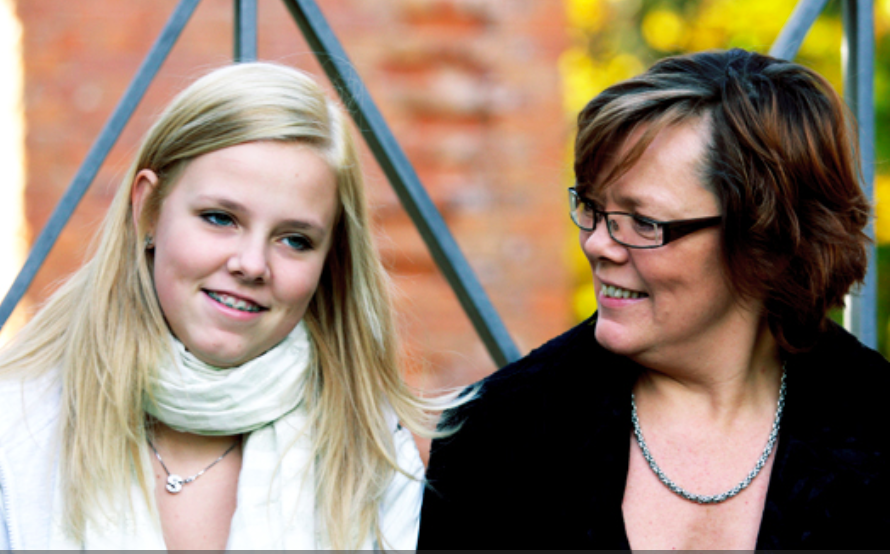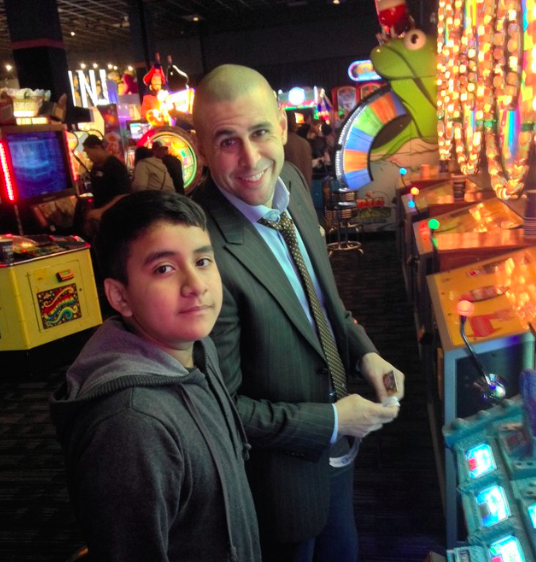For this educator, teaching is mentoring
It is safe to say that I would not be here, doing this, if not for the assistance of mentors.
One of the most important of those mentors was my undergraduate creative writing professor at the University of Illinois, Philip Graham. He’s been present in just about every stage of my career since I first entered his introductory fiction writing course.
He introduced me to the amazing pleasures of trying to write creatively. He helped me get into graduate school. He helped me secure my first teaching job. He provided a model for me to emulate in my own teaching and writing. To this day, he is a consistent source of encouragement when I do well, and solace when things go poorly.
But having gone to an R1 like U. of I, I was also lucky to intersect with Professor Graham. The number of other professors both inside and outside of English that seemed interested in me as a human being was zero[1].
The importance of mentoring can’t really be disputed, can it? It’s true up and down the educational ladder. Everything we know about first generation college students says that mentoring can be the difference between persistence and dropping out.
So maybe we should look at it as heartening that Purdue University is looking to make“significant changes” to its tenure requirements in order to make faculty act as “active mentors to undergraduate students.”
As an R1 university, this kind of shift for Purdue would be fairly radical, and, as reported by Inside Higher Ed, faculty are skeptical of a change cooked up in the provost’s office, and affirmed by the board without faculty input as of yet.
In my time as NTT faculty at three different R1 universities I witnessed many instances of tenured faculty mentoring students, but I also witnessed a culture in which mentorship was viewed as a form of volunteerism, a going above and beyond the call of duty. Many did this willingly because they understood that acting as a mentor is one of the great pleasures of teaching, but in terms of structure of reward inside the institutions, the process of mentoring was virtually worthless.
Purdue’s administration appears to be responding to the findings of its partnership survey with Gallup, which indicates that particular types of engagement and mentoring are correlated with future career success and overall personal well-being.
David Sanders, vice chair of the Purdue faculty senate, pushes back in the IHE article, noting (correctly), that correlation is not causation and that like all of these surveys that seek to measure the effect of education on individuals, the failure to measure inputs casts all findings in doubt. He says that using the Gallup-Purdue index as a “determination of policies” would be “a travesty.”
While I think the findings of the Gallup-Purdue index as they relate to well-being and success are so obvious that they score very high on the “no shit, Sherlock,” scale[2], I nonetheless agree with Professor Sanders that using the survey in this fashion would be ill-advised.
The mechanism for measuring mentorship as part of one’s tenure profile is yet to be determined, but any mechanism, be it based on the Gallup-Purdue index, or any other metric is pretty much doomed to failure.
It is doomed because mentorship is not wholly predicated on faculty behavior, or faculty action. It’s simply more complicated than that, and like many worthwhile things, it resists measuring.
A good mentor is many things simultaneously. They are a source of information and knowledge which can be passed on. They are also a gauge, an evaluator who can hold the student accountable to the work. They may occasionally be cheerleader, other times a disciplinarian.
Importantly, mentors are also examples, people who are practicing the work which students hope to do, or if not the work itself, mentors can exemplify the values that go into doing good work in general.
Many of my important mentors are mentors for no other reason than their obvious enthusiasm for their fields. Those attitudes are infectious. When I see someone else enjoying their life’s pursuits, it reminds me that such things are possible, even if I may choose an entirely unrelated path.
Different students will require different types or styles of mentoring. One of the greatest mentoring gifts I was ever given during my MFA degree was the option to be left alone as I wrestled with trying to figure out what I wanted to write. I needed that benign neglect to work through my own anxieties of influence and come out the other side as something closer to myself.
So a measurement of “student contact hours” or surveys of student opinion asking questions like, “My professor was always aware of my work and gave consistent feedback,” may be actively harmful, fostering a culture of helicopter instruction.
If Purdue’s goals are to improve undergraduate instruction, mechanisms of measurement are also wholly unnecessary, because at its heart, mentoring is teaching, and teaching is mentoring. If the teaching is genuine, if it is student-focused, if it is done at a human scale, mentoring will happen.
I know this from my own experience as student and teacher. So do you. So does Purdue.
If Purdue wants its tenure track faculty to teach and therefore mentor, they must empower them to do so, rather than setting up yet another bar that the faculty must clear.
In many ways, this initiative is far more radical than the initial proposal lets on. It is an actual remaking of the purpose and focus of a research university.
I also think it is likely to be a terrible fit.
You cannot change a culture via top-down administrative initiative. Having now spent four years teaching inside a liberal arts an sciences college that is almost entirely organized around undergraduate education, I’ve seen the difference culture makes. Mentorship is a kind of fact of life at College of Charleston. It needs no measuring because it burbles from the bottom up, as it is the kind of place that attracts faculty who are drawn to the pleasures of mentoring, and where teaching is valued when it comes to decisions of tenure. Classes are small. Contact with students is significant. The atmosphere is primed for teaching and mentorship.
If Purdue wants to change its culture, it needs to consider many more dimensions first. It needs to not only consult faculty, but build the culture from their strengths and desires.
My hunch is that they’d find many faculty who would enjoy being empowered to work more closely with students, but how could they know if they don’t ask?
Purdue, or other institutions like it who also desire to move toward more robust undergraduate education must also deal with the fact that due to contingency, significant proportions of their faculty are not in a positions to act as mentors. They are divorced from the security and resources and rewards necessary to do this important work. When contingent faculty do this work, it is beyond volunteerism, and into self-sacrifice.
I would love to see a world where public education of all stripes moves away from the “prestige” economy that drives research universities, but if it’s going to happen, many more oars (faculty, students, administration, government, public) need to be in the water and rowing in that direction first.
[1] The other transformative teacher I had at U of I, Steve Davenport, was a graduate student at the time, and currently works in a primarily administrative role at the university.
[2] For example, those who agree that they “had a mentor who encouraged them to pursue their hopes and dreams” are 2.2 times more likely to be engaged in their work. Being engaged in your work is important because it makes you 4.6 times more likely to declare you are “thriving” in your well-being.











